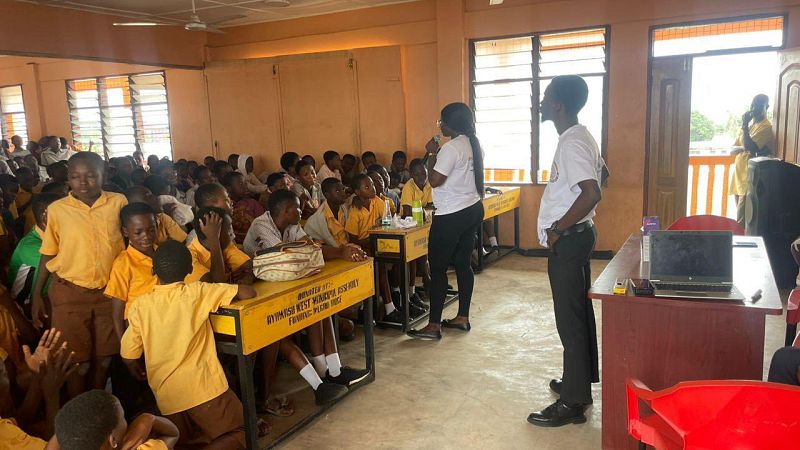Ghana makes local languages compulsory in schools

The government of Ghana has announced that all teachers must now use local languages as the main medium of instruction at the basic school level.
Education Minister Haruna Iddrisu revealed the new policy on Friday October 24. calling it a decisive step toward improving learning outcomes and protecting Ghana’s cultural identity.
“From today, teacher use of mother-tongue instruction is now compulsory in all Ghanaian schools,” he declared.
This shift challenges decades of English dominance in Ghana’s education system.
Why Ghana is making this move
The idea behind the policy isn’t new, and already has strong global backing.
Research by UNESCO and the World Bank has long shown that children learn faster and more confidently when taught in their mother tongue, especially during their early years of schooling.
For Ghana’s government, the policy is also about cultural empowerment. After generations of using English, a colonial inheritance, as the language of instruction, officials say it’s time to reconnect education with identity.
This idea is also gaining momentum in countries like South Africa, Kenya and Tanzania.
The challenge ahead
This plan is likely to come with many challenges.
The west African nation is home to more than 70 languages, with about 11 officially recognised for education and broadcasting including Akan (Twi and Fante), Ewe, Ga, Dagbani, Nzema, and Gonja.
So how do you pick one language in a classroom where half the students might speak another?
Urban areas like Accra and Kumasi are especially diverse, with children from multiple ethnic and linguistic backgrounds. The government has said schools will teach in the “dominant local language” of the area, but that’s not always easy to define.
Then there’s the issue of resources.
Most Ghanaian textbooks are written in English. Translating them into multiple local languages, training teachers to use them, and maintaining consistency nationwide could take years.
“We already struggle to get basic materials in English,” said one teacher in Accra in an interview with a local radio station. “Now we’ll need books and training in ten different languages. It’s a good idea, but we’re not ready.” a basic school teacher in Kumasi spoke Freda Serwaa spoke to Africanews.
This isn’t Ghana’s first attempt. A similar policy was rolled out in the early 2000s but faded after a few years due to lack of support, poor implementation, and resistance from parents who worried it would affect their children’s English proficiency
A wider African debate
Ghana’s decision weaves into a larger conversation across the continent.
Countries like Tanzania and Ethiopia have long promoted mother-tongue education at the primary level, with mixed results.
In Tanzania, Swahili serves as a unifying language that makes the policy easier to implement. But in more linguistically diverse countries like Nigeria, Kenya, and Cameroon, implementation has been challenging.
Critics of English or French-based systems argue that teaching children in colonial languages often isolates them and limits comprehension. Others are also of the opinion that say removing English too early could disadvantage African students in global spaces where English remains dominant.
“It’s a tough balance,” a university lecturer, Dr Ernest Kissi of Kwame Nkrumah University of Sciennce and technology says . “We want to preserve our identity, but we can’t ignore the realities of global communication and opportunity.”
Could Ghana become a model?
For Ghana, this is as much a social experiment as it is an educational one. If it works, it could inspire similar reforms across Africa, showing that countries can design school systems that reflect their culture without compromising on global competitiveness.
But if it fails, due to limited resources, unclear strategy, or poor execution, it risks being remembered as another well-intentioned idea that never left the policy paper.
Still, there’s no denying the symbolic weight of the move. It’s a statement of confidence, that Ghana, one of Africa’s most stable democracies, is willing to redefine education on its own terms.
So, can it work?
That’s the question that will define this reform.
For now, the success of Ghana’s language policy will depend on three major factors: proper teacher training, availability of learning materials, and political will to see it through.
If all three align, Ghana could be setting the stage for something much bigger an African education system that finally speaks in its own voice.
Today

